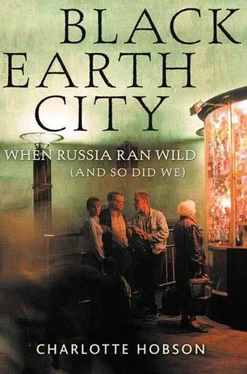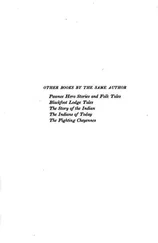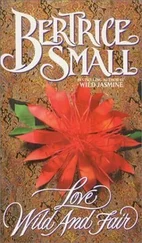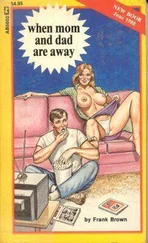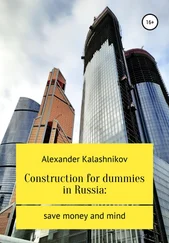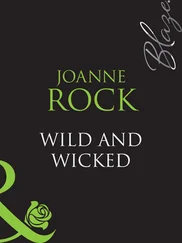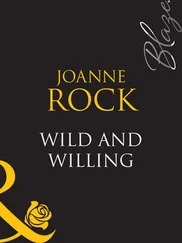With the warmer weather, according to the Horse, came an especially pure load of heroin. Petya had been warned, the Horse said, and Petya, more than anyone, knew the score. And the Horse shrugged.
The funeral was a pitiful affair. The photographs and paper rosettes that decorate Russian cemeteries give the graves a temporary, tattered look. The headstones are inches apart; even in death Russians these days must be thrifty. Afterward there was a wake back at the apartment. We stood about feeling awkward until a few toasts were drunk—without clinking glasses, as is the custom when you drink to the dead. Slowly the atmosphere warmed up and the Narcomen, who had been looking forlorn, began to talk and gesticulate. Lapochka, while telling one of Petya’s stories, knocked old Pyotr Pravda’s photograph off the wall onto the samovar, breaking the glass, and his grimaces of apology made everyone laugh. We stayed till midnight, by which time the apartment was a welter of dirty plates and tears and jokes and empty bottles.
Ludmilla kept an eye on Petya’s mother for the next few weeks and made sure she ate. Even the Narcomen visited a couple of times. By Orthodox custom, however, the soul remains in this world for forty days before departing forever to the next. So forty days after his death, we met to say good-bye to Petya Pravda.
This gathering was a less emotional event than the funeral. The Horse was leaving for St. Petersburg the week after—he was having an art exhibition. Petya’s mother gave him paper and books that had been Petya’s and a scolding to dress warmly. I watched her bustle about the apartment and wondered about her arthritis.
“It’s better,” she said, and for the first time that day her eyes filled with tears. “The apartment has become so warm since… since. It used to be damp, the drafts gave me so much pain. You know, I’m a crazy old woman, but I can’t help thinking my son is looking after me.”
The photograph of old Pyotr Pravda was in its place; without the glass the resemblance to his grandson was even more marked. But after its steaming from the samovar, the picture was looking its age. The red of the passport had made a bloody wound down his chest. Around his head was a yellow-brown tea stain, and his dark eyes gazed out of this impromptu halo with a look of serene despair.
Let me go, return me, Voronezh:
you will drop or lose me,
you will let me fall or give me back.
Voronezh, you are a whim, Voronezh,
you are a raven and a knife.
OSIP MANDELSTAM,
THE VORONEZH NOTEBOOKS , 1936
“Do you remember Smokey, Lapochka’s friend?” Mitya asked.
“He’s gone. He and a friend of his, Vlad, went to the Ukraine last week, and from there they’re going to try and get a boat to Bulgaria.”
“A summer holiday?” We were sitting on the Voronezh beach—a sandbank at the edge of the reservoir—and eating slabs of vanilla ice cream. The sun was so hot I was only half listening, wondering whether to move into the shade.
“Well, not exactly. They don’t have visas. From Bulgaria they think they can cross to Yugoslavia and fight as mercenaries for the Serbs.”
“What? Do they have some idea about the unity of the Slavs or something?”
“No.”
“Why then?”
“Why do you think? For the money.” Mitya was silent for a minute, then he added, “And to get out of here, of course.”
Everyone seemed to be leaving. The Horse was going to paint in St. Petersburg. Valya Uvarova was heading for the United States. Yuri, Emily’s boyfriend, Igor, and Lyuba all had places to study abroad. Sasha, the guy in the hostel who’d been in the Afghan war, had been wearing dark glasses for the past six weeks. He’d had laser surgery to correct his nearsightedness: good eyes were a condition of joining the French Foreign Legion.
“Seven years of service and then you get French citizenship,” he explained.
“Is it really worth it?”
“Of course it’s worth it. In seven years I’ll only be thirty-one.” He grinned. “If I make it.”
Even Lapochka was preparing to get out. He had scraped together ten dollars and an envelope containing articles from the Voronezh Courier that described him and the other Narcomen by name as degenerates. He was going to hitch to England with his ten dollars—he was sure he’d get there somehow—and demand asylum. The article proved that he was in danger in Voronezh from the growing influence of the “red-brown coalition”—the Communist and Nationalist parties, whose bigotry brought them together. What were the odds that such a plan would succeed? But a year and a half later I met Lapochka cycling down Upper Street in Islington as though he’d lived there all his life.
Our last weeks in Voronezh were astonishingly, gloriously hot. The sidewalks were dusty and ice cream sellers stood in the shade of the knobbly plane trees with their cans shaped like milk churns, mopping their foreheads and uttering faint enticements.
“Creamy ices,” they murmured as you passed. “Cool yourself… the healthiest, the purest.”
At weekends the city emptied and even during the week it seemed to have a lackadaisical, gone-fishing slowness. Shop assistants propped open the doors and sat outside; they fanned themselves and almost forgot to terrorize their customers. Other strange phenomena occurred, which everyone ignored completely. One June morning I woke up to see the sun blazing in a turquoise sky, and the air full of snowflakes.
“Oh,” Ira said, without even turning to see. “It’s pukh . When they planted all the poplar trees, they somehow got hold of the wrong sort, with seeds like snow. So every June the Soviet Union is full of pukh. It gives people terrible asthma.”
The pukh , like cotton wool, settled in drifts, and small boys amused themselves by setting fire to it. Meanwhile on the corner of Friedrich Engels and Peace Prospect, a crater seven feet in diameter appeared overnight and was fenced off with a little piece of string. Since the thaw, roads had been caving in and flooding all over town wherever a pipe had burst. On one occasion drivers waiting at a set of traffic lights suddenly found that their cars were standing in a foot of water. When they tried to drive away, their tires seemed to have collapsed. They stepped out of their cars and screamed: the water was scalding hot. Their tires had melted.
In the heat Emily and I began the task of packing up our lives. We staggered back and forth to the central post office, where an assistant wrapped our books in brown paper and sealed them with wax before sacrificing them to the Russian postal system. We took our bottles to the bottle bank and put the money into a fund for our farewell party. Then we sat for a long time smoking cigarettes and contemplating our room.
“You won’t be able to take it all with you,” Sveta commented, before we’d even started. “Anything you don’t want—”
“Yes, Sveta, we know who to give it to.”
“All right, calm down.”
Sveta tactfully withdrew; or so we thought, until she reappeared ten minutes later with a couple of boxes.
“These are for whatever’s left,” she stated. “Just put it all in there for me.” And she left again, quickly, having seen our expressions.
On the hottest day of all we took the elektrichka one last time and headed out into the woods for our leaving party. There was a crowd of us: almost all the English students, and the girls from Room 99, Yuri, Peanut, Yakov and Katya, Joe and Ira. The train was full of city dwellers with the same idea, and the air was heavy with sweat. With our bicycles, Mitya and I barely squeezed into the doorway at the end of the car. The conversation turned to the matter of going abroad; we’d talked about nothing else for weeks.
Читать дальше
